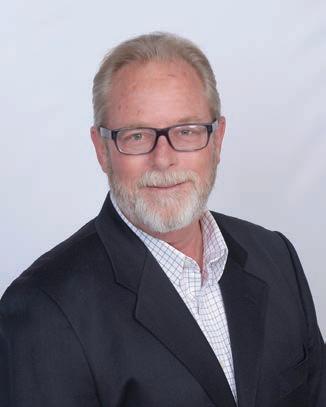
4 minute read
County aprpoves $1.6M to fix Louviers water
Sedalia help also approved
BY ELLIS ARNOLD EARNOLD@COLORADOCOMMUNITYMEDIA.COM

Years of high levels of radium, a contaminant linked to the risk of cancer, in the rural community of Louviers may soon come to an end now that Douglas County sent federal funding to help the local water system x the problem.
Residents in Louviers — an area south of Highlands Ranch along U.S. Highway 85 — saw a notice from their water provider in early 2019, alerting them that their system exceeded a safety limit for radium in drinking water.
Another letter from the provider, the Louviers Water and Sanitation District, in 2021 outlined that the water had violated the “maximum contaminant level” for radium since late 2018.
In a small community, cost stood in the way of xing the problem. e federal American Rescue Plan Act came in as a lifeline.
e act, often called ARPA, is a $1.9 trillion economic stimulus bill signed into law in March 2021 with a goal to support the economic and public health recovery from the coronavirus pandemic.
“Any assistance, especially nancial, that Douglas County could provide through ARPA” would be “critical in keeping this community going,” Matt Collitt, board president of the Louviers water district, wrote in a 2021 letter.
His words were addressed to Douglas County’s elected leaders, who voted to send federal funding for upgrades to Louviers’ water system at an April 11 meeting this year. e county commissioners also voted to provide American Rescue Plan dollars to Sedalia — a short drive south of Louviers on the same highway — where another aging water system has often experienced issues.
Health risks in Louviers e discovery of radium in the water put the Louviers water district under an enforcement order from the Colorado Department of Public Health and Environment, according to a county news release.
Radium is a naturally occurring radioactive chemical element that forms when uranium breaks down, according to a state health department fact sheet.
Uranium and radium generally occur naturally at low levels in soil, water, rocks, coal and plants in Colorado, the fact sheet says. Colorado’s natural geology includes some areas with high mineral content and high uranium and radium as well. Radium cannot be detected by taste or smell.
“Everyone breathes in and swallows low levels of radium from the air, water, and food every day,” the fact sheet says. “Exposure to low levels of radium is unlikely to harm your health, but exposure to high levels can increase the risk of cancer and other health e ects.” e agreement between Douglas County and the Louviers water district, approved April 11, provides $1.6 million for construction associated with a radium treatment system. e funding may also be used for replacement of aging or undersized water and wastewater lines, according to county sta . e agreement also provides that the Louviers water district will participate in other regional water and wastewater agreements along the Highway 85 corridor, Dan Avery, the county’s special projects manager, said during the meeting.


(Aside from supplying drinking water, the Louviers district also provides sewer services.)
Construction could start by this December and could nish by December 2024, according to the agreement.

Fixing water lines in Sedalia
Down the road in Sedalia, another water system faces its own issues, including “frequent breaks,” a presentation linked on the county’s website says.
e presentation notes the “limited” nancial capabilities and revenue sources in the also-small community.
“ ese infrastructure improvements are absolutely vital for us to continue to have a sustainable water source,” Mary Kasal, an engineer for e agreement the commissioners approved April 11 between the county and the Sedalia water district provides $2.6 million for leak repair and costs associated with water line replacement. e agreement also provides that Sedalia’s water system be equipped with an “emergency interconnection” to regional infrastructure that can deliver renewable water supplies, Avery said.
Sedalia Water and Sanitation District, told the county commissioners about the county’s funding decision for Sedalia.
Overall, the project cost totals $8.3 million. Along with funding from the county agreement, Sedalia has more federal funding through the U.S. Department of Agriculture, Kasal said. Construction could start in summer 2024 and could nish in 2025 or early 2026, according to the agreement.
About the communities
Hundreds of residents live across the Louviers and Sedalia areas, which are unincorporated, meaning they aren’t managed by a city or town government.
Despite its name, the Sedalia Water and Sanitation District does not provide sanitary sewer services, its website says.
Wastewater in Sedalia and surrounding areas is handled by onsite wastewater treatment systems, according to a 2012 report to the commissioners about infrastructure planning in northwest Douglas County.
“I feel validated that this sends a statement that politics should not enter education and, at the same time, discriminatory acts have consequences,” Wise said.
e administration o ce for the school district said on Monday it did not have any comment on the settlement.
e settlement is not an admission of liability for the district or board members.

Board President Peterson said in a statement that he voted to re Wise because of a lack of competency and reiterated that the settlement is not an admission of liability.
“As one director, I voted to terminate the former superintendent due to a lack of competency - period,” he said. “I will not allow this matter to distract me from focusing on our students and securing more competitive pay for our teachers and sta .”
Board Member Williams also provided a statement, saying she voted to re Wise because she felt he was “unable to meet the requirements of an e cient and e ective leader.”
“I’m thankful we can nally move forward and put the focus back on our students and sta ,” Williams said.
Myers, Peterson, Williams and Winegar campaigned and were elected on platforms that included removing mask mandates in schools and making changes to the district’s equity policy.
Wise’s complaint alleged those actions, as well as numerous statements from the four board members, were evidence they were motivated by discriminatory views against immunocompromised people, people of color and LGBTQ+ people.
“I think their actions were retaliatory and discriminatory, not only against me, but all of the students that we were trying to protect,” Wise said, adding that they showed “poor leadership.” e goal with the complaint is to stand up against discrimination and push back against partisanship and misinformation, Wise said.
Iris Halpern, Wise’s attorney, agreed,








